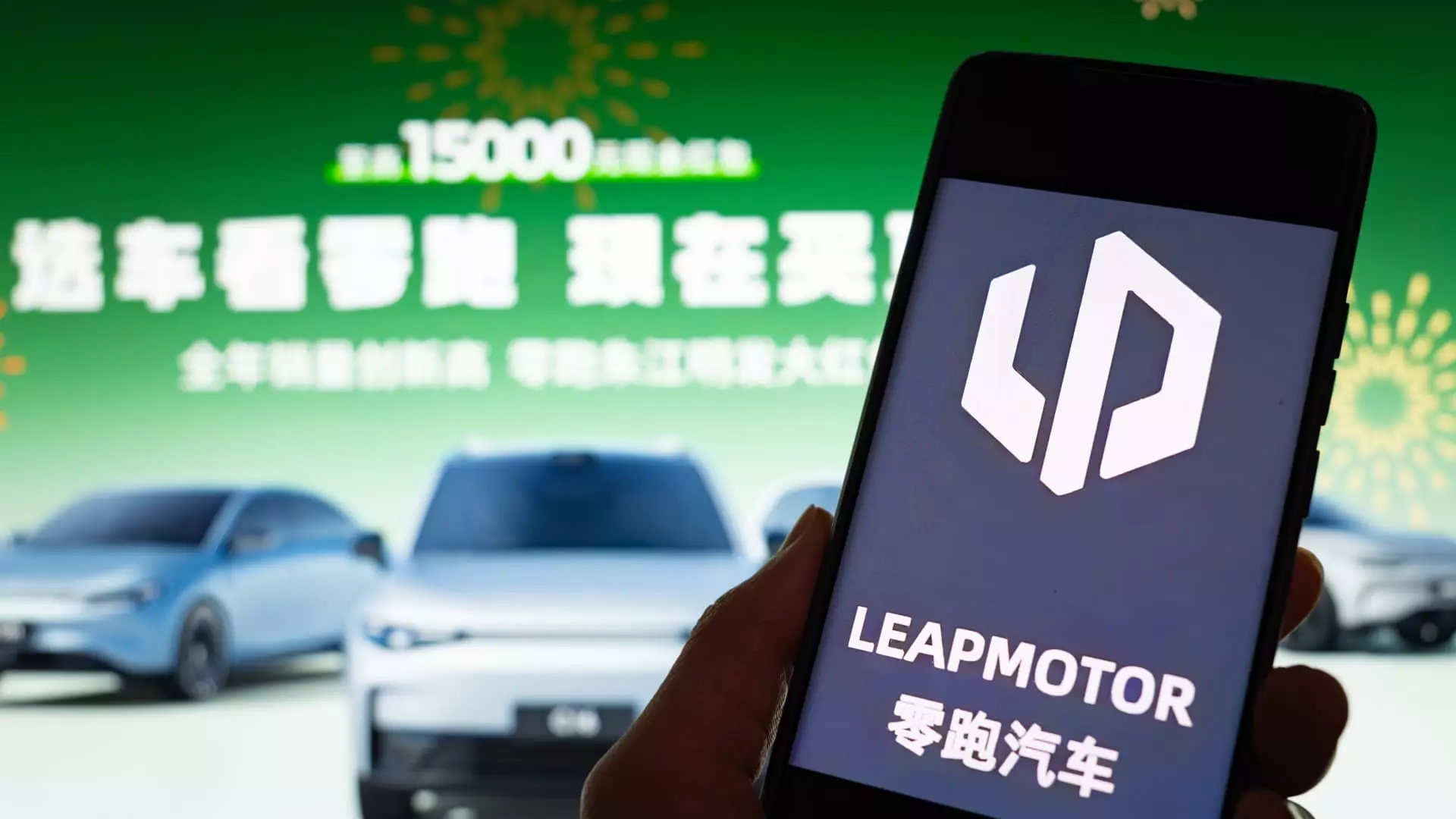The recent surge in electric vehicle (EV) sales among Chinese carmakers like Leapmotor and Aito is nothing short of astonishing. Both companies have not only set delivery records but also demonstrated an impressive growth trajectory amidst an escalating price war. Leapmotor, supported by Stellantis, pushed out 45,067 vehicles in May—a staggering 148% year-on-year increase. Meanwhile, Aito delivered 44,454 vehicles, showcasing Huawei technology in their ultra-luxury sedan, the Maextro S800. The euphoric headlines celebrate this growth as a sign of innovation and competitiveness. Yet beneath this shiny surface lies a disconcerting truth: are we witnessing a race to the bottom fueled by unsustainable practices and cut-throat competition?
While the excitement in the electric vehicle sector is palpable, we must ask ourselves—at what expense? The relentless drive for market share is forcing manufacturers to engage in drastic price-slashing measures that could ultimately destabilize the industry. BYD’s aggressive cuts, including a dramatic 20% reduction on models like the Seagull hatchback, serve not just to attract buyers but also instigate fears of a bubble akin to the catastrophic Evergrande crash of 2021. The headlines may hail these moves as savvy business tactics, but they leave a bitter aftertaste for long-term sustainability.
The Fallout: A Double-Edged Sword
As the competition heats up, not all players are riding the wave of success. Xpeng has seen its deliveries dip from 35,045 to 33,525 in a single month, despite touting impressive year-on-year growth of 230%. Meanwhile, the likes of Nio are faltering, with a 13.1% year-on-year increase masking a decrease in total vehicles delivered from the previous month. This dissonance highlights a troubling trend where established brands risk being swept aside by the rising tide of new entrants. In such a volatile environment, even the top-tier companies are not immune from the repercussions of a profit-driven race that devalues their offerings.
This is not simply an issue of sales figures; it’s a question of identity. Chinese automakers are scrambling to diversify their portfolios, vying for survival in both domestic and international markets. The U.S. and EU have imposed tariffs that add another layer of complexity to their aspirations. Instead, as reported by the South China Morning Post, the focus is shifting toward emerging markets. The strategic pivot signifies desperation rather than innovation—an attempt to circumvent challenges rather than confront the realities facing the industry at home.
The Illusion of Growth
We must scrutinize the narratives surrounding these massive delivery figures. While a company like Xiaomi can boast over 28,000 vehicles delivered, it’s crucial to recognize that mere numbers do not equate to quality or sustainability. With startups like Geely-owned Zeekr showing only marginal growth, we shouldn’t overlook the undercurrents of inconsistency that threaten to undermine the broader industry. Free driver-assistance technology may serve as a differentiator, yet it remains a superficial response to an increasingly fierce rivalry.
Furthermore, the influx of lesser-known entrants raises questions about consumer trust and product reliability. The allure of the new can overshadow critical assessments of quality, safety, and performance. In chasing sales numbers, are these companies sacrificing what truly matters to consumers—confidence in their investments?
Facing the Music: A Call for Responsible Innovation
The rapidly evolving EV market in China is a testament to innovation but also a cautionary tale about the risks inherent in relentless competition. The impressive sales figures encourage a mindset that equates quantity with success, overshadowing crucial ethical considerations. As companies vie for headlines and market share, it is essential to foster an industrial culture that values responsible innovation over cutthroat tactics.
The stakes are high, and the current landscape poses serious questions about the future viability of Chinese EV companies. If the industry’s leaders fail to navigate this divide responsibly, we may soon find ourselves witnessing not just a sales boom but a subsequent collapse. The emphasis on delivering record numbers must not come at the expense of sound business practices and sustainable growth. As exciting as the rise of electric vehicles may be, we must remain vigilant against the pitfalls that accompany this gold rush mentality.

